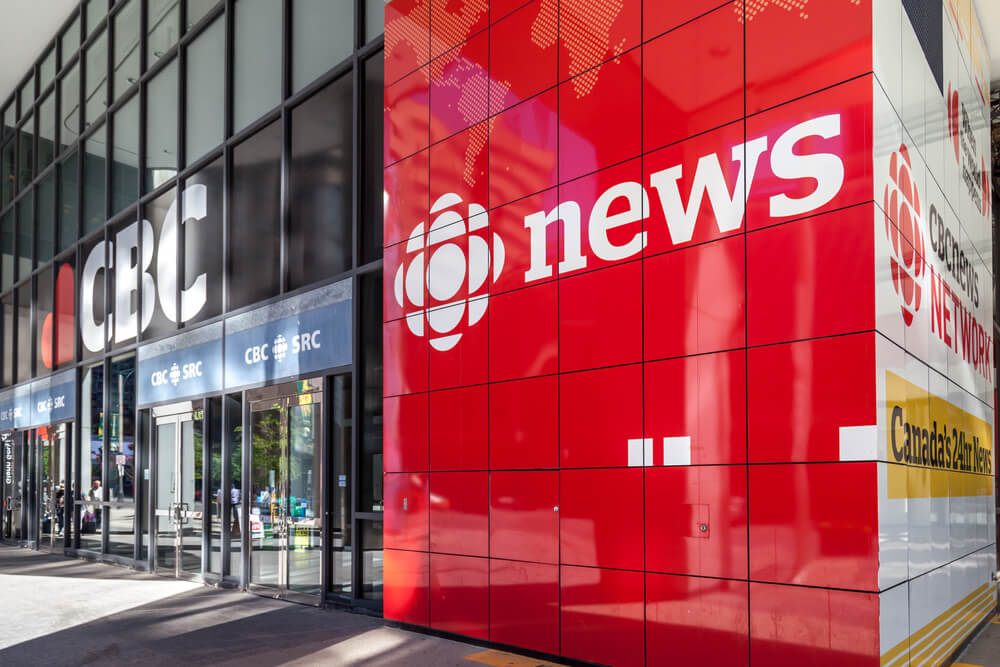The closing months of 2023 were not kind to CBC/Radio Canada. Despite steady increases to its budget since the Liberal government was elected in 2015, CBC/SRC president Catherine Tait announced the loss of 600 jobs — fully 10 per cent of its workforce — on a budget shortfall of $125 million.
Canada’s public broadcaster is struggling alongside most other broadcasters and media organizations as new technologies and viewing habits make mincemeat of forecasts and strategic plans.
But the current cuts are just a taste of what will happen if the Conservatives form the next federal government. Pierre Poilievre has promised to defund the CBC and Radio-Canada too.
In response, the Heritage Minister, Pascal St. Onge has suggested that it may be time to review the CBC’s mandate to ensure it is still fit-for-purpose. Cue the summoning of expert panels to grind through a dispiriting Solomon’s choice: local and national news or popular entertainment, as though a self-respecting country and G7 economy can’t have both.
Perhaps the real question is whether 88 years since its founding there is still a legitimate role for any government in determining the focus, much less the existence, of Canada’s public broadcaster?
After all, following what were critical and often overdue reforms, few today believe that governments should have a role in setting interest rates or involve themselves in the work of the judiciary or police investigations. The reason is understood: some public institutions work better — or can only work at all — when insulated from political interference. Why isn’t the same true for public broadcasting?
Despite various safeguards that protect journalists from management and management from government, the federal government’s budgetary control of CBC/SRC remains almost absolute. This is why, as CBC/SRC approaches its Centennial, the time has come to set it free.
On its own, CBC/SRC’s budget might seem lavish — a cool $1.4 billion. But according to a 2018 report, compared to 20 international peers, the federal funding is miserly. Per capita, we spend about $33 on our public broadcaster each year. The international average is closer to $90.
The fact is that Canada has been massively underspending on its public broadcaster for decades.
Now that the bottom has fallen out of the media industry, the federal government has offered various forms of support, including the Journalism Labour Tax Credit and the Online News Act, which require social media and search platforms to pay up for the news they display.
So, it’s not only CBC/SRC that is supported by federal tax dollars. An additional $600 million now flows annually to privately owned media companies — and still, layoffs are coming from all directions.
The hard truth is that even with these new dollars, we are just barely hanging on to local and national news in this country, much less to high quality cultural and entertainment programming in both official languages.
This is at a time when Canadians find themselves inundated by misinformation and exposed to deceptive campaigns sponsored by hostile foreign governments. Rapid advances in artificial intelligence are poised to make this situation much worse which is why ensuring quality information in our media ecosystem has become so critical.
So, what happens when a future opposition leader threatens to defund not only the CBC/SRC but decides to pull public support for private media too? In a democracy, some institutions belong above the political fray, especially when the market fails to deliver key public goods. The fourth estate is one of them.
This is why we need a radical new approach — an end to annual appropriations and ministerial oversight for the CBC/SRC in exchange for an endowment fund that would see public and private media adequately supported in perpetuity.
A newly established Canadian Media Trust could operate independently from government and abide by a charter that would ensure that its resources were spent on high quality journalism, cultural programming and entertainment. Additional revenue, like those from the Online News Act could flow into the Trust to grow its endowment over time.
Let future governments woo voters by promising to top up the endowment and strengthen Canadian media, or else to withhold new investments and diminish but not dismantle it. The underlying question of whether Canada needs a strong, independent mix of public and private media, much less a public broadcaster, would be settled.
Canada would be stronger for it.
Photo courtesy of DepositPhotos



